Jeep tires wear out faster than other SUVs, but there are steps you can take to increase their lifespan.
Jeep road tires, also known as highway tires, last between 40,000 and 60,000 miles or about six years. Off-road tires, which have an aggressive tread pattern and softer rubber, only last about 50,000 miles or five years.
In this article, we’ll cover the average life expectancy of on-road and off-road Jeep tires. We’ll explore why Jeep tires wear out faster, along with what you can do to increase the lifespan of your tires and prevent uneven wear.
We sourced the information used in this article from Jeep and well-known tire manufacturers. We also drew off the experiences of the Jeep community and reputable off-road tire maintenance guides.
Jeeps, specifically Jeep Wranglers, have been known to wear out tires faster than other SUVs. This is primarily because of their drivetrain design and how people use them. The main cause of fast tire wear on Jeeps is frequent or improper use of 4-wheel-drive.
Your typical Jeep Wrangler is not an ‘all-wheel-drive’ vehicle like a Subaru Outback. Instead, it’s a traditional part-time 4-wheel-drive vehicle that uses solid axles and a manual transfer case. This is not a system that’s designed for constant use.
Many people drive their Jeeps in 4-high when they’re not supposed to. The 4-wheel-drive system on Jeeps is only designed to be used on dirt or snow and not on dry pavement. Anyone who ever tried to make a sharp turn in 4-high knows why—the system binds up and causes the car to hop.
Front differentials are not designed to be used on dry pavement. When the wheels don’t turn, like on the back of a car, a differential allows them to spin at different speeds for turning. It doesn’t work as well on the front wheels, and this causes tremendous drivetrain strain, which eats up tires.
Jeep tires come in many shapes and sizes, though they usually fall into one of two categories: on-road and off-road tires.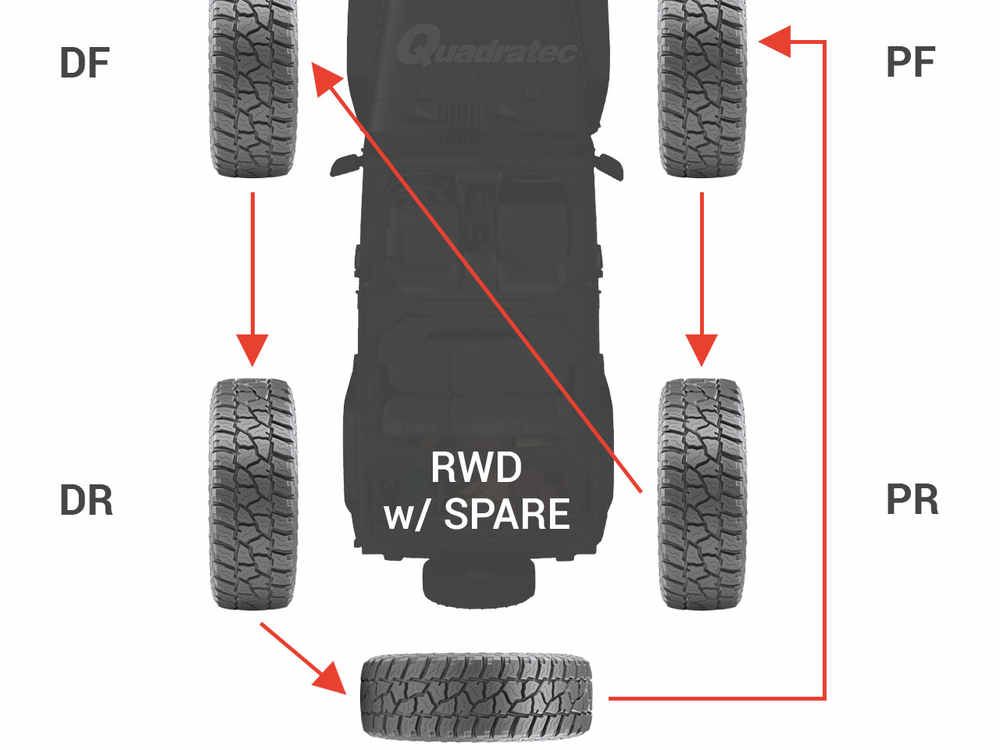 The tires you use can have a significant effect on their lifespan. Here are the differences between highway tires and off-road tires and why they wear out at different intervals.
The tires you use can have a significant effect on their lifespan. Here are the differences between highway tires and off-road tires and why they wear out at different intervals.
Jeeps come from the factory with what we call ‘highway tires.’ Standard factory tires, depending on where the vehicle is sold, can be all-terrain or all-season, and sometimes plain old summer tires.
Highway tires aren’t off-road tires. They can be used on or off-road, but they’re designed for efficiency and longevity. Generally speaking, these tires have a reasonable tread depth and an unremarkable tread pattern.
Generally speaking, factory Jeep tires last longer than aggressive off-road tires. This is because they have more tread contact with the road and less aggressive tread, which distributes wear evenly and doesn’t wear particularly fast on the pavement.
Off-road tires are much more aggressive than highway tires. These tires have deeper tread and larger gaps between the tread, which improve their ability to grip on surfaces with large debris.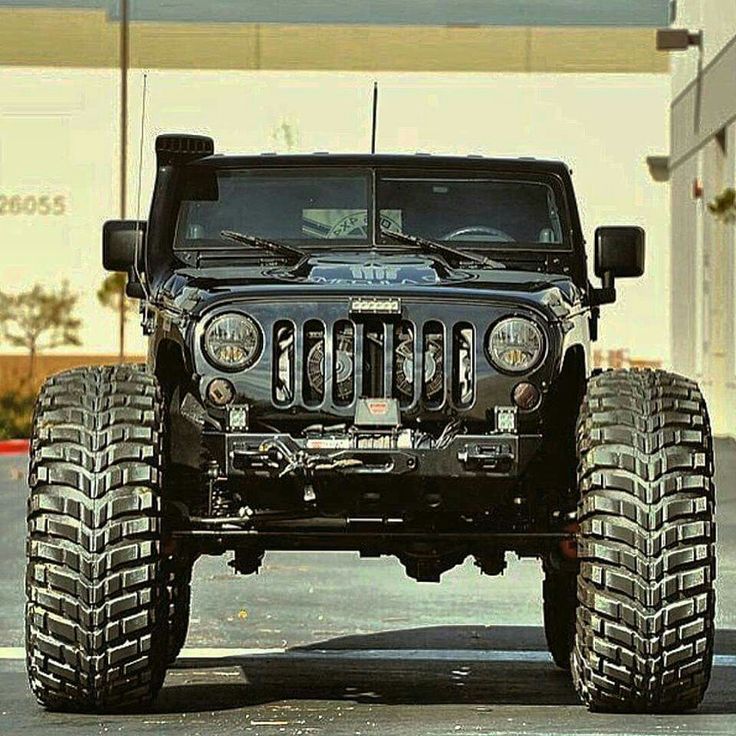 Off-road tires are a common addition to Jeeps, and they’re a necessity for serious off-roading.
Off-road tires are a common addition to Jeeps, and they’re a necessity for serious off-roading.
Off-road tires are larger than highway tires, and they tend to have much more sidewall area and height. Off-road tires wear out on the highway much faster than highway tires, as the large gaps between their tread put additional wear on the contact surfaces.
Highway tires last quite a long time on Jeeps, but not quite as long as they do on cars. This is due to their increased size and the weight of the car, along with the solid axles.
Solid axle suspension doesn’t allow independent wheel travel. As a result, Jeep tires experience rigid forces on the road and wear out a bit faster, regardless of the tire type.
Regular highway tires should last between 40,000 and 60,000 miles on a Jeep, provided you avoid drifting, burnouts, and other activities that wear out tires quickly. In other words, you should replace your Jeep highway tires every six years.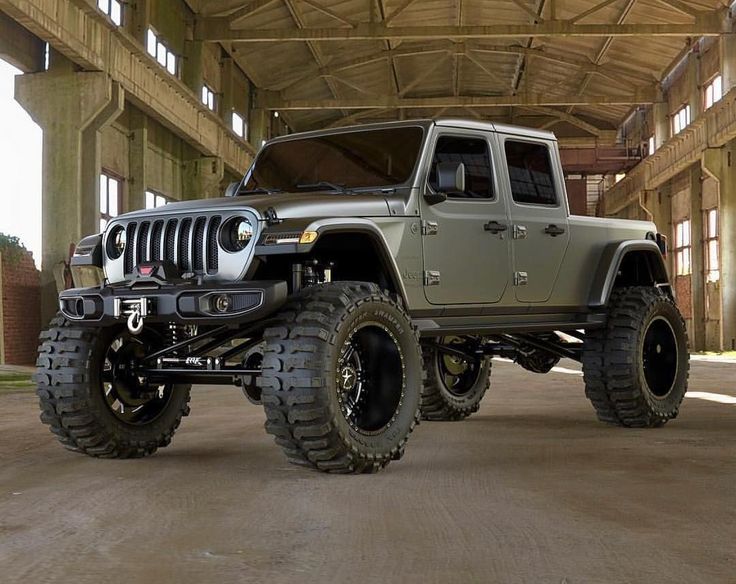
Some owners can stretch the life of stock Jeep tires to ten years or more, but this comes with hazards. As tire rubber ages, it hardens and becomes more brittle and prone to cracking. This can lead to a catastrophic failure, like a blowout.
As we touched on earlier, it’s safe to assume that off-road tires won’t last as long as highway tires on a Jeep. This is especially true if you drive on the highway with them, as highway driving is notorious for wearing out tires with an aggressive tread.
Additionally, the more aggressive the tire, the shorter its highway lifespan will probably be. This is because aggressive tires have less tread contact and thus more wear on the existing tread. Off-road tires have longer lifespans if they’re driven primarily off-road or on dirt or gravel.
A set of high-quality off-road tires on a Jeep will last between 30,000 and 50,000 miles. The average lifespan of aggressive Jeep tires tends to be around 40,000 miles, but there are exceptions in both directions.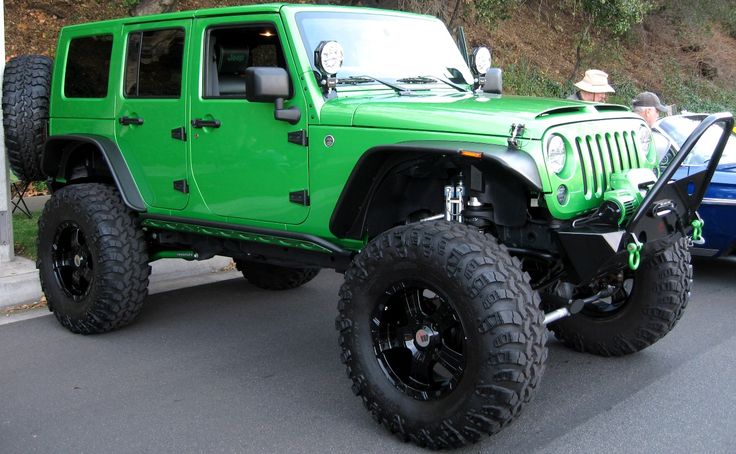 With frequent highway use, the lifespan is about five years tops.
With frequent highway use, the lifespan is about five years tops.
Tire lifespan can be measured in two ways—years and mileage. Off-road tires can last just as many years as highway tires (and perhaps more), but hardly ever last as many miles. Again, this is due to the use of the tire and also the composition of the rubber.
Off-road tires are made with softer rubber, which is another primary reason why they wear out faster. But why not buy a tire with harder rubber? Well, that would defeat the purpose, as off-road tires use softer rubber to grip better on uneven surfaces.
Think about it—the tire can mold to the ground and increase its useful surface area. This is also why they wear out faster, as more of the tire (and less tread relative to its size) contacts the flat highway.
Yes, winter tires last longer on Jeeps. This is because winter tires have higher tread but don’t sacrifice contact area as off-road tires do. Winter tires are also made with more robust rubber, which stays supple in cold weather and doesn’t wear out as quickly.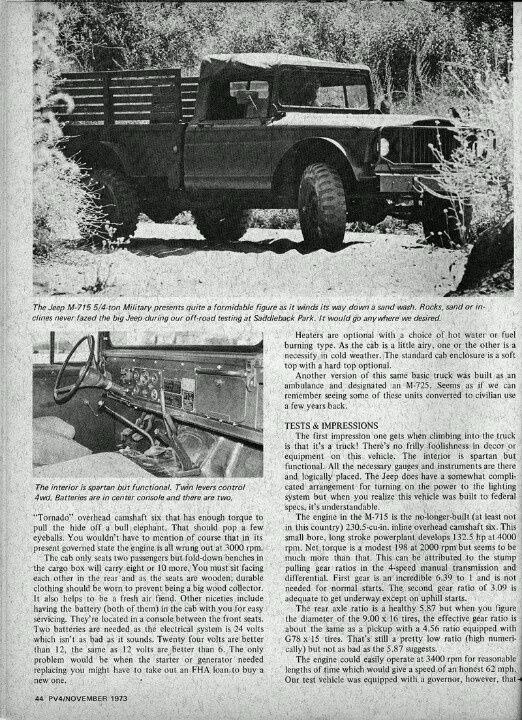
Jeep Wranglers require frequent tire rotation, especially when used in 4-wheel-drive. It’s also essential to rotate your tires if you’re running off-road tires or mud terrains. The factory recommends rotating your tires every 5,000 to 7,500 miles or every time you get a major tire service done.
It’s easy to increase the life of your Jeep tires. First, be sure to follow tire rotation recommendations. Rotate mud terrains and large off-road tires more frequently, as they wear out faster.
Always keep tire pressure in the recommended range, and check it frequently. Additionally, get leaks repaired promptly, and replace your Schrader valve and valve caps every once in a while.
Balancing your tires is key to extending their lifespans. Also, well-balanced tires prevent vibrations and uneven tire wear. Alignment is also key, and have your front axle camber checked and kept within spec.
All of these steps are vital, especially if you use your Jeep off-road.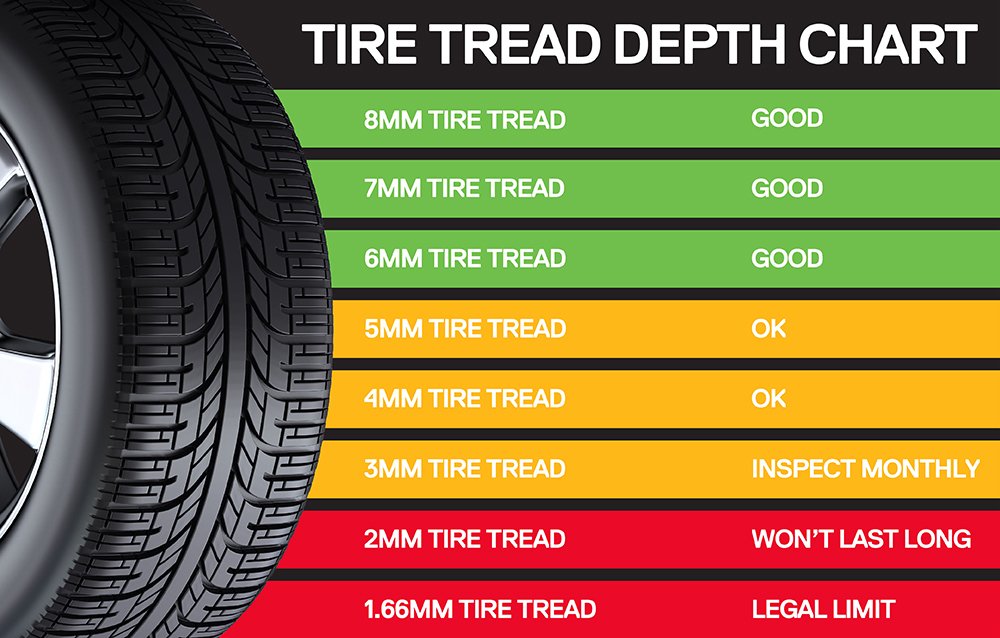 Lift kits and other modifications can further degrade tires over time, especially if they knock any of your suspension components out of alignment.
Lift kits and other modifications can further degrade tires over time, especially if they knock any of your suspension components out of alignment.
The most important thing you can do to increase your tire life is to drive properly. Avoid using 4-high or 4-low on dry pavement. And if you must, avoid turning aggressively. Additionally, don’t accelerate or brake too hard—and never allow your brakes to lock up and skid the tires.
If you drive primarily on pavement, it’s best to choose an all-terrain tire instead of aggressive off-road tires if you’re concerned about tire life. Additionally, keep your tires clean and free of debris once you’re back on the road.
Tires are, of course, an essential component of your vehicle. Do you have a Jeep and don't know how long you should wait between changing its tires? How long should tires on a Jeep last anyways? For your convenience, we have brought you these answers.
Jeep tires should last you between 40,000 and 60,000 miles, or around six years. That said, Jeep's off-road tires have a slightly shorter lifetime, ranging from 30,000 to about 50,000 miles, or roughly five years.
As we begin, we will cover all things Jeep tires and discuss how to keep them in good shape. Whether you just purchased your first Jeep or have had them in the past, knowing how long their tires will last is always important. With that said, let's get right into this topic!
Before you continue reading, let us say we hope you find the links here useful. If you purchase something through a link on this page, we may get a commission, so thank you!
Generally, Jeep tires will last you five to six years, depending on what terrains you choose to drive them on. Jeep tires, although somewhat durable, won't usually last longer than 50,000 miles, especially if you take them off-roading or drive on the highway frequently.![]()
That said, not all Jeep tires are made the same, so their design can heavily impact how long they last.
Unfortunately, this is true; Jeeps tend to wear out tires faster. Unlike your typical sedan or SUV, Jeeps are designed for more rugged driving, which in turn can wear down their tires quite a bit.
On top of that, many Jeep owners often misuse their vehicle's four-wheel drive, which isn't great for its tires. According to CarShtuff, the four-wheel-drive on a Jeep is only for dirt and snow, so using it on dry pavement can damage your tires over time.
Typically, a new Jeep Wrangler will come with 15- to 17-inch factory highway tires. These are essentially their on-road, standard tires that will last you around five to six years.
Although you can upgrade to a more aggressive, off-road option, Jeep's standard tires will usually last you longer and are known for being reliable. That said, you can go off-roading in Jeep's factory tires, but this will cut down their overall lifespan.
That said, you can go off-roading in Jeep's factory tires, but this will cut down their overall lifespan.
For more info on Jeep Wranglers, check out this article: How Long Does Jeep Wrangler Last?
The tire size that you can put on your Jeep depends on your vehicle's model. According to Four Wheel Trends, most Jeeps will need a lift for tires 33 inches or bigger while some can't handle more than 31 inches.
For example, if you have a Jeep Wrangler Unlimited LJ, your tires can be up to 31 inches without a lift, whereas the JKU and JLU models can safely go up to 33 inches. That said, before you make any decisions, check with your local Jeep dealer to see what they think is best.
This all-terrain tire is 31 inches, has 15-inch rims, works in all road and weather conditions, and has a load index rating of 109.
Follow this link to Amazon to see it.
This mud-terrain radial tire is 33 inches, has 15-inch rims, has a 2,205-pound load capacity, and has great online reviews.
View this tire on Amazon here.
Although replacing all four of your Jeeps tires can be costly, it is a good idea. Especially if your Jeep has all-wheel drive, replacing only one of its tires can end up damaging your vehicle, so it's best to replace as many as possible.
According to Repair Pal, if your tires don't all have a similar circumference, they can cause an abnormal load to the transfer case of a vehicle, which can lead to serious problems. If your tires are relatively new, like under 5,000 miles, we would say you are okay only to replace one.
Typically, you can expect to pay between $500 and $700 for four new tires. Of course, if you prefer a thicker or specialty tire option, your price tag can get closer to $1,000 for all four, which can make replacing them difficult in the future.
According to one of Jeep's dealers, 2021 pricing for a new Wrangler tire is between $150 and $350, and for high-performance options, it can be upwards of $500 per tire. You don't have to purchase tires through Jeep, although this is usually the best option.
Most times, things like the following cause the most wear on tires:
Other factors like potholes, harsh weather, and poor quality roadways are also to blame for tire wear, so the list is endless. With that said, purchasing higher quality tires that can handle a beating is a good way to avoid the repair shop but expect to pay the price.
When it comes to keeping your Jeep's tires on the road longer, there are a few ways to do this. Most importantly, make sure to rotate your tires regularly, especially for mud terrains and off-road tires.
Another good way to increase a Jeep tire's life is to always keep its pressure in the recommended range and check it frequently. On top of that, you want to keep your tires as balanced as possible to prevent them from vibrations and uneven wear.
For those in places with heavy winters, yes, winter tires will last longer than standard options. Generally, winter tires will have higher tread than other designs and are made with stronger, more durable rubber.
Another benefit of using these tires is that they won't wear out as quickly in cold weather because their rubber is thicker. That said, winter tires aren't meant for year-round use, so this might not be ideal for your situation.
This winter tire works on SUVs and trucks, is 18 inches, severe weather rated, and has a free 45-day test drive.
Check out this tire on Amazon here.
Jeep's basic 36,000-mile warranty will not cover tire-related issues. However, Jeep does offer a roadside assistance warranty that includes flat tires for up to 60,000 miles, so that might be worth checking out.
However, Jeep does offer a roadside assistance warranty that includes flat tires for up to 60,000 miles, so that might be worth checking out.
Although Jeep doesn't offer much help when it comes to their tires, most third-party tire manufacturers will have a one to five-year warranty on their products, so keep an eye out for those options.
In general, most new Jeeps will not come with an included spare tire. Although many Jeeps will include a tire replacement kit, you usually need to pay an extra fee or upgrade your vehicle to get an actual spare tire.
For example, a 2021 Jeep Cherokee, regardless of model, will not automatically come with a spare tire, but you can add one for an additional fee. Jeep's other popular vehicle, Renegade, does feature an included, full-size spare tire, but only if you choose its Trailhawk model.
Having a spare tire in case of emergency is always helpful.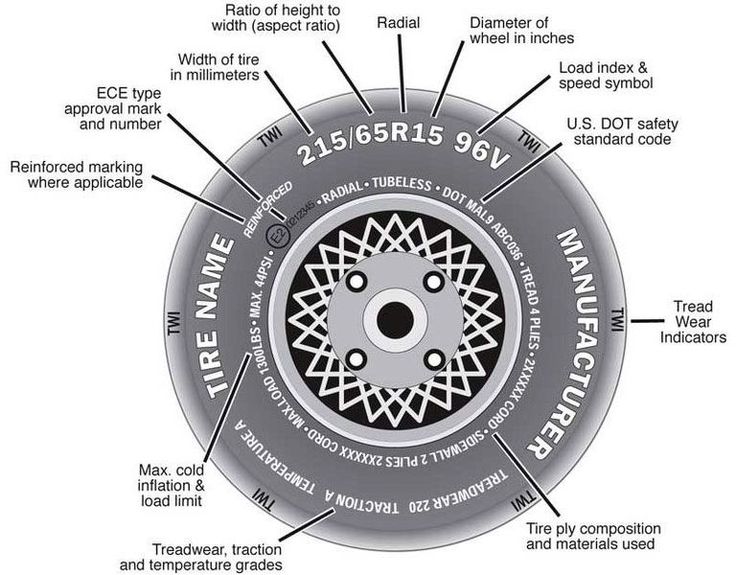 Of course, keeping a spare tire, especially an off-road or high-performance option, can add weight to your car, which can negatively impact gas mileage.
Of course, keeping a spare tire, especially an off-road or high-performance option, can add weight to your car, which can negatively impact gas mileage.
Ultimately, this will come down to your preference, but we would recommend having a spare tire just in case anything happens and you can't get in contact with your insurance or other roadside assistance.
Whether you want to buy a Jeep or have had them forever, it is important to figure out how long their tires last. Jeep tires will typically last you 40,000 to 60,000 miles or around six years, but this varies.
When it comes to Jeep tires wearing out quickly, this is a common issue because of Jeep's off-road design and its customers misusing its all-wheel-drive feature. Price-wise, you can expect to spend anywhere from $500 to $700 for all new tires, but with high-performance options, prepare to spend closer to $1,000. Regardless of what model you drive, make sure to rotate your Jeep's tires regularly and keep them as balanced as possible.
Craving more Jeep content? Check out these helpful related posts below!
How To Turn Off The Parking Brake On A Jeep Renegade?
How Far Can A Jeep Renegade Go On Empty?
What Are The Best Tires For Jeep Renegade?
Tuesday, June 27, 2017 11:20:00 Europe/Moscow
Is there such a process as tire aging? And if they are not exploited, will they lose their properties over time? Is time another wear factor?
Michelin took this issue seriously and commissioned scientific research, which was carried out by two independent organizations - the Korean Consumer Protection Center (Korean Department of Customer) and ADAC - the German Automobile Organization (ADAC, The German Motorist Organization).
Studies have shown no significant difference in performance between newly produced tires and tires stored under the recommended conditions for three years . Strict adherence to the storage regime is a prerequisite for the validity of the experiment.
Michelin conducted this study to clarify the issue of tire aging, as there is a misunderstanding in the market today about which tires can be considered "old".
Answering the most popular questions from consumers, the company noted that the "aging" of tires is primarily not a temporary process, but an operational one. Therefore, for tire performance assessment, it is not the date of manufacture that is important, but the date of installation on the car and the time and operating conditions resulting from it.
Tires are subjected to air pressure and mechanical stress when fitted to the rim and vehicle. When properly stored (according to the manufacturer's recommendations), the tires are only affected by small temperature fluctuations in the storage area.
The date of installation on the car can be considered the date of counting the "age" of the tire .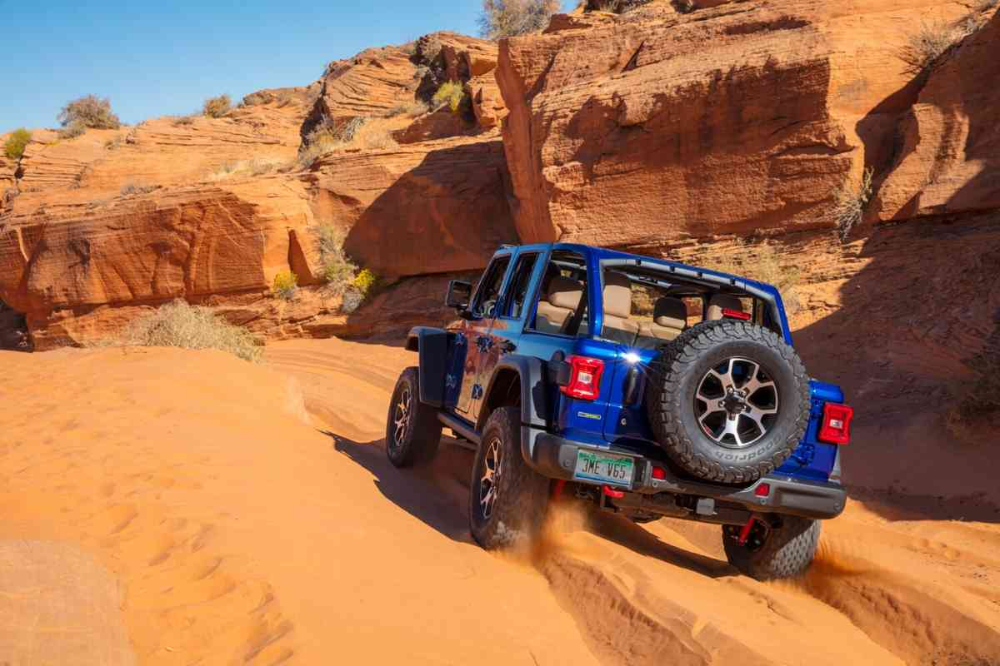 It is from the moment the tire is mounted on the rim that it begins to be subjected to real loads - tensile materials and air pressure. Once the wheel assembly is installed on the vehicle, these factors are added to the weight pressure of the vehicle, the impact of the roadway, as well as all the variety of different loads experienced by the tire during daily operation.
It is from the moment the tire is mounted on the rim that it begins to be subjected to real loads - tensile materials and air pressure. Once the wheel assembly is installed on the vehicle, these factors are added to the weight pressure of the vehicle, the impact of the roadway, as well as all the variety of different loads experienced by the tire during daily operation.
Compliance with the recommended tire storage conditions is a guarantee of maintaining their factory characteristics .
Tires should be stored in a cool place on clean surfaces that are free of gasoline, grease and other contaminants that can adversely affect the rubber. Tire storage areas should not be adjacent to nearby sources of heat and ozone - heating pipes and power generators, they should not be exposed to direct sunlight. Prolonged exposure to these factors can cause tire cracking.
After installing the tires on the car, Michelin recommends:
regularly check the tire pressure and keep it at the recommended level;
regularly inspect tires for damage and repair them in a timely manner;
to measure the residual depth of the tread pattern, when the minimum allowable value is reached, immediately remove the tires from service.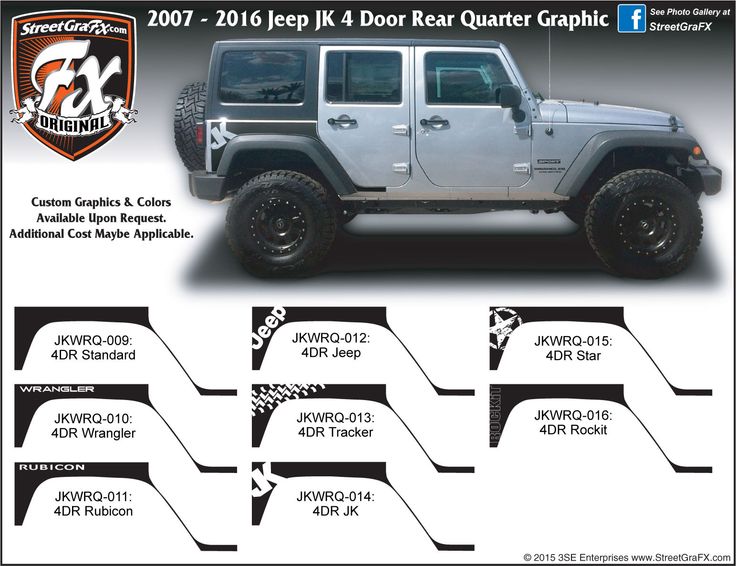
Michelin does not recommend using tires after 10 years from the date of manufacture .
The studies and recommendations are valid for passenger car, light truck and SUV tires.
We have long been accustomed to the fact that the tire has a tube, but today no one considers car tubeless tires a miracle of technology
They appeared on cars, motorcycles and other vehicles. Together with them, tires with cameras continue to be produced. So, it means that not everywhere rubber without cameras is very good? Let's try to answer this question.
Is it worth putting tubeless tires on an SUV or not? In the city, many cars drive on such tires, and off-road on many issues is always discussed separately. Traditional opinions differ. Someone wants to buy tubeless tires for an SUV, and someone is a mountain for chamber ones. Consider the advantages of tubeless tires for an SUV and in general:
 The lower it is, the better for many parts of the car, especially the suspension, of course. Good tubeless tires for an SUV are best reflected in driving performance.
The lower it is, the better for many parts of the car, especially the suspension, of course. Good tubeless tires for an SUV are best reflected in driving performance. Yes, tubeless tires have huge advantages, and they are most revealed on the roads.